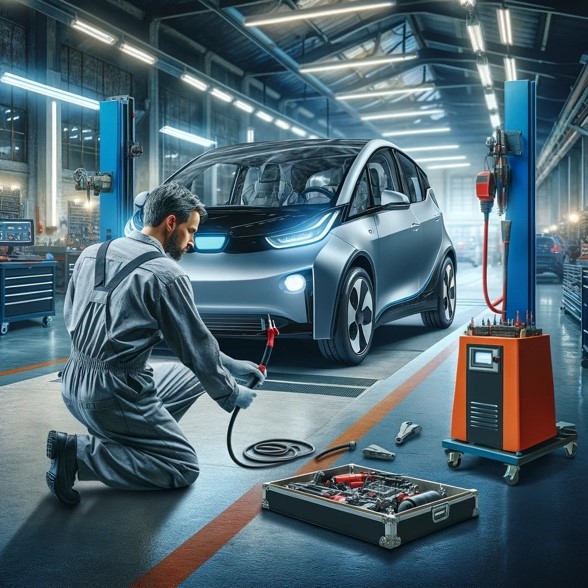The future of automotive mechanics is shaping up to be an exciting journey of evolution and innovation, deeply influenced by rapid technological advancements in the automotive industry. This transition not only reshapes the cars we drive but also significantly alters the skills and knowledge required by mechanics who inspect, maintain, and repair them. Here are seven key points that outline what the future holds for automotive mechanics, leveraging insights from various sources:
7 key points that outline what the future holds for automotive mechanics
1. Transition to Electric and Hybrid Vehicles

The automotive industry is witnessing a significant shift towards electric and hybrid vehicles. This shift is changing the landscape for mechanics, necessitating an understanding of electric drivetrains, high-voltage systems, and battery technology. Mechanics will need specialized knowledge to service these types of vehicles, moving away from traditional internal combustion engine repairs to focus on electrical and electronic systems.
2. Importance of Continuous Learning

With the automotive industry evolving at a rapid pace, mechanics must commit to continuous learning and adaptation. The transition to electric and hybrid vehicles, along with the introduction of advanced driver-assistance systems, means that mechanics will need to stay up-to-date with new technologies and repair techniques.
3. Advanced Diagnostic Tools

Today’s auto repair shops are equipped with sophisticated diagnostic tools that help mechanics identify and address vehicle issues with greater precision. However, this also means that mechanics must be proficient in using these tools and interpreting the data they provide, necessitating a blend of traditional mechanical skills and modern technological expertise.
10 Best Electric Cars in Canada With Description And Prices
4. Software and Connectivity

Modern vehicles are increasingly connected, capable of diagnosing themselves and updating their own software. This reduces the number of manual diagnostics and repairs mechanics traditionally performed, pushing the profession closer to technology and software programming.
5. Safety and Driver-Assistance Systems

As vehicles incorporate more safety and driver-assistance technologies, mechanics will need to familiarize themselves with these systems to ensure they function correctly. This includes systems like adaptive cruise control, lane-keeping assistance, and automatic emergency braking.
6. The Changing Role of Mechanics

The role of mechanics is transitioning from traditional “grease monkey” work to more technologically driven tasks. Mechanics are becoming more like technicians, with their job including a lot of software programming and less of the traditional heavy lifting and greasy work.
7. Future Opportunities and Challenges

Despite the challenges posed by the transition to more technologically advanced vehicles, there is a growing demand for skilled technicians capable of servicing these new systems. The future promises more transparency within the auto repair industry, potentially leading to better customer confidence and understanding of vehicle repairs.
The automotive repair industry is set to become more specialized, with a focus on software, connectivity, and environmental sustainability. As the industry continues to evolve, mechanics will have the opportunity to redefine their roles, embracing new technologies and practices that promise a cleaner, safer, and more efficient future for automotive maintenance and repair.
To further explore the future of automotive mechanics and the impact of technology on the profession, consider these insights as a roadmap for what’s to come, emphasizing the importance of adaptability, continuous learning, and technological proficiency in the ever-evolving automotive landscape
Read Latest News about Automobile Sector: https://infofeedhub.com/category/automobile/
